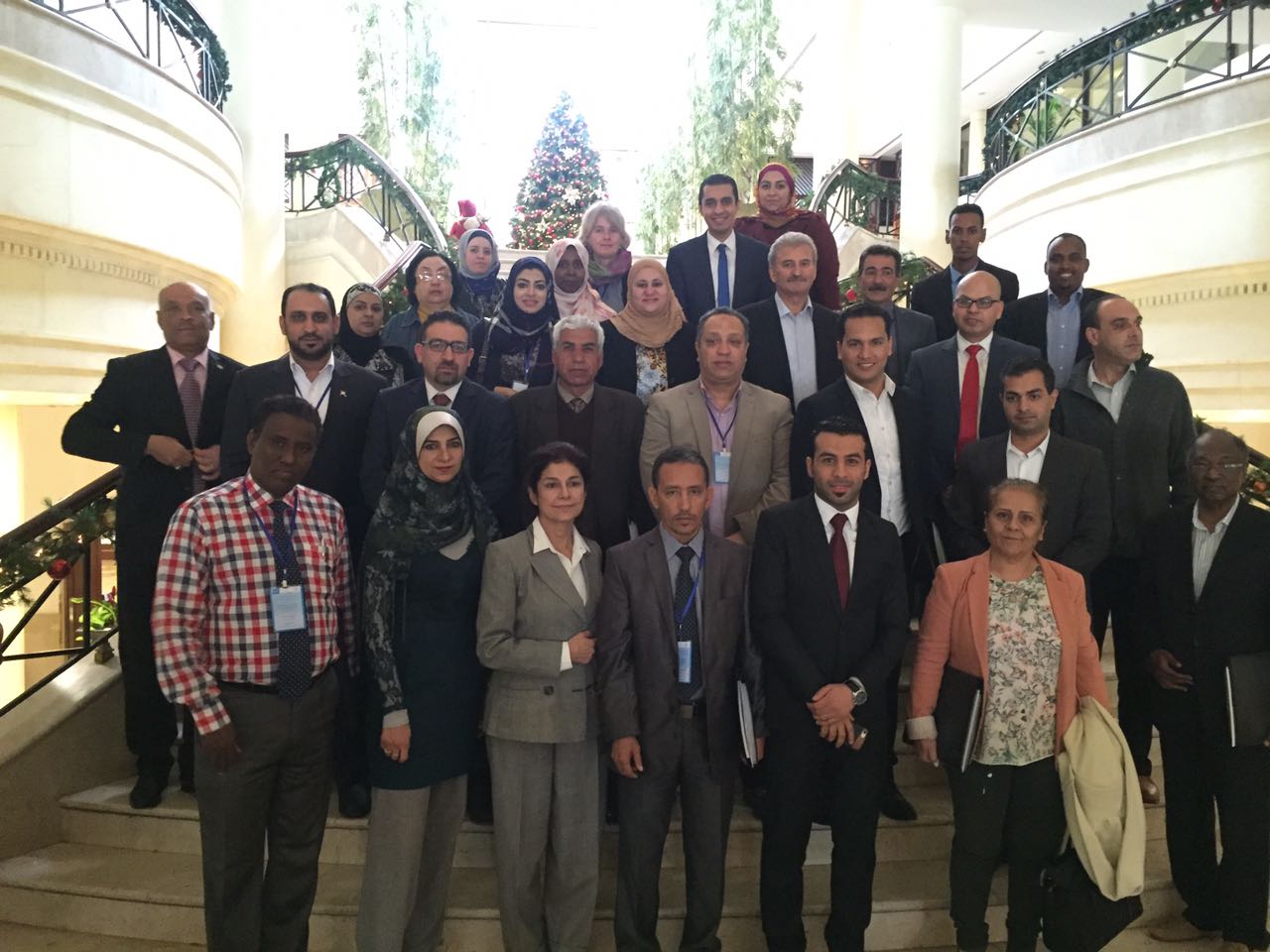NIHR Participates in a Workshop on the “Role of National Human Rights Institution in Monitoring and Implementing Sustainable Development Goals 2030

The National Institution for Human Rights (NIHR), represented by member of its Council of Commissioners Dr. Mona Mohamed Hijris and Head of National Legislations Unit at NIHR’s Secretariat-General Mr. Mohamed Ahmed Al-Najar, participated in a workshop on the “Role of National Human Rights Institutions in Monitoring and Implementing Sustainable Development Goals 2030’, held in Amman, capital of Jordan. The workshop was organized by the Arab Network for National Human Rights Institutions (ANNHRI) in cooperation with the National Human Rights Center (NHRC) in Jordan, Office of the United Nations High Commissioner for Human Rights (OHCHR) and UN Development Program (UNDP).
The three-day workshop illustrated the Sustainable Development Goals 2030 and their relation to human rights instruments and mechanisms. It further reviewed the anticipated roles of governmental bodies as well as national human rights institutions and civil society organizations in monitoring and implementation of such Goals, focusing on Goal 5 to “achieve gender equality and empower all women and girls”, Goal 10 to “reduce inequality within and among countries” and Goal 16 to “promote peaceful and inclusive societies for sustainable development, provide access to justice for all and build effective, accountable and inclusive institutions at all levels”, with reference to purposes and target groups as well as national institutions’ procedures to monitor, accomplish and implement such Goals.
The Sustainable Development Goals 2030 is a UN plan, which was adopted by the UN General Assembly in 2015 and entered into effect as of January 2016. It is composed of 17 Goals and 169 Targets, which basically aim at encouraging the countries over the next fifteen years to take real transformative actions towards building a more sustainable world through consolidation of all relevant official and non-official bodies. These Goals are integrated, indivisible and universal by nature, which take into account the different capabilities and national levels and respect national policies and priorities. This Plan is based on the achieved Millennium Development Goals (MDGs) adopted in 2000, which have been leading the development work during the past 15 years.


